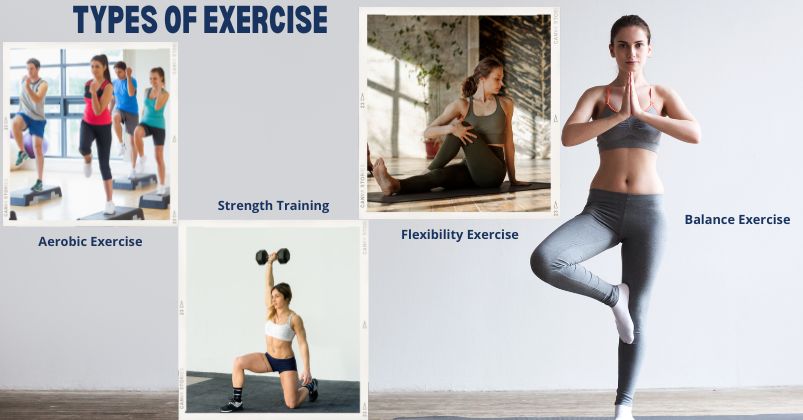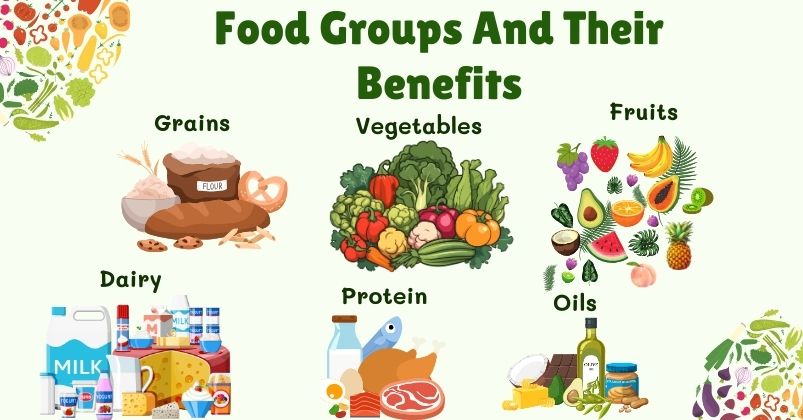Exercise and Nutrition: The Key to a Healthy Lifestyle
Exercise and nutrition are two of the most important factors in maintaining a healthy lifestyle. Exercise helps to improve overall health and reduce the risk of chronic diseases, while nutrition provides the body with the fuel it needs to function properly. Together, exercise and nutrition can work wonders for the body, improving both physical and mental health.
Understanding the benefits of exercise is important for anyone looking to improve their health. Exercise can help to reduce the risk of chronic diseases such as heart disease, stroke, and diabetes, while also improving mental health and reducing stress. When combined with a healthy diet, exercise can also help to maintain a healthy weight and reduce the risk of obesity.
Key Takeaways
- Exercise and nutrition are important factors in maintaining a healthy lifestyle and reducing the risk of chronic diseases.
- Exercise can improve overall health and mental well-being, while nutrition provides the body with the fuel it needs to function properly.
- A balanced diet that includes a variety of fruits, vegetables, whole grains, lean proteins, and healthy fats can help to reduce the risk of chronic diseases and support overall well-being.
Understanding Exercise And Its Benefits
Regular exercise is a crucial component of a healthy lifestyle. Not only does it help maintain a healthy weight, but it also reduces the risk of chronic health conditions such as heart disease and diabetes. In this section, we will explore the role of regular exercise, the benefits of exercise for chronic health conditions, and the different types of exercise.
Role Of Regular Exercise
Regular exercise plays a vital role in maintaining good health and well-being. It helps to improve energy levels, reduce stress, and promote better sleep. Additionally, regular exercise can help to improve athletic performance and overall fitness levels.
Aerobic exercises such as running, swimming, and brisk walking are great for improving cardiovascular health. Strength training exercises such as weightlifting can help to build muscle and improve muscle recovery. Flexibility exercises such as yoga can help to improve flexibility and prevent injury.
Exercise And Chronic Health Conditions
Regular exercise is beneficial for individuals with chronic health conditions. According to the National Heart, Lung, and Blood Institute, regular exercise can help to reduce the risk of heart disease, stroke, and diabetes. Additionally, exercise can help manage chronic conditions such as arthritis and chronic obstructive pulmonary disease (COPD).
Individuals with chronic health conditions should consult with their healthcare provider before starting an exercise routine. Beginners should start slow and gradually increase the intensity and duration of their exercise routine.
Types Of Exercise

There are several types of exercise that individuals can incorporate into their routines. These include:
Aerobic exercise: This type of exercise increases the heart rate and improves cardiovascular health. Examples include running, swimming, and brisk walking.
Strength training: This type of exercise helps to build muscle and improve muscle recovery. Examples include weightlifting and resistance band exercises.
Flexibility exercises: This type of exercise helps to improve flexibility and prevent injury. Examples include yoga and stretching.
Balance exercises: This type of exercise helps to prevent falls, especially in older adults. Examples include dancing and tai chi.
In conclusion, regular exercise is a crucial component of a healthy lifestyle. It provides numerous health benefits and can improve athletic performance and overall fitness levels. Individuals should consult with their healthcare provider before starting an exercise routine, and beginners should start slowly and gradually increase the intensity and duration of their exercise routine.
Nutrition And Its Importance
Proper nutrition is an essential component of a healthy lifestyle. It is important to understand the role of nutrients in maintaining a healthy body and achieving fitness goals. A balanced diet that includes a variety of food groups can provide the necessary nutrients to fuel the body and improve overall health.
Understanding Nutrients
Nutrients are substances that provide energy and support the growth, maintenance, and repair of the body. They include carbohydrates, proteins, fats, vitamins, minerals, and water. Each nutrient plays a unique role in the body, and deficiencies can lead to health problems.
Carbohydrates are the body's primary source of energy and are essential for exercise and physical activity. They can be found in whole grains, fruits, vegetables, and dairy products. Proteins are important for building and repairing tissues and can be found in meat, fish, eggs, and plant-based sources such as beans and nuts. Fats are essential for energy and cell function and can be found in oils, nuts, and seeds.
Role Of A Balanced Diet
A balanced diet includes a variety of food groups in the right proportions to provide the necessary nutrients for the body. It is important to consume the right amount of calories to maintain a healthy weight and fuel the body for physical activity.
Whole grains, fruits, vegetables, and dairy products provide important vitamins and minerals such as potassium, magnesium, and calcium. These nutrients are important for maintaining healthy bones, muscles, and blood sugar levels. Antioxidants found in fruits and vegetables can also protect the body from free radicals, which can damage cells.
Food Groups And Their Benefits

The following table outlines the food groups and their benefits:
| Food Group | Benefits |
| Grains | Provide energy and fiber |
| Vegetables | Provide vitamins, minerals, and fiber |
| Fruits | Provide vitamins, minerals, and antioxidants |
| Dairy | Provide calcium and other important nutrients |
| Protein | Provide amino acids for building and repairing tissues |
| Oils | Provide essential fatty acids |
It is important to consume a variety of foods from each food group to ensure that the body is getting all the necessary nutrients. A healthy diet can also help prevent obesity and other health problems.
In conclusion, proper nutrition is essential for maintaining a healthy body and achieving fitness goals. A balanced diet that includes a variety of food groups can provide the necessary nutrients to fuel the body and improve overall health.
Exercise And Nutrition In Disease Prevention
Regular exercise and a healthy diet are essential for maintaining good health and preventing chronic diseases. In this section, we will discuss the role of exercise and nutrition in preventing various diseases.
Exercise
Exercise is one of the most effective ways to prevent chronic diseases. Regular physical activity has been shown to reduce the risk of heart disease, stroke, type 2 diabetes, and some types of cancer. It also helps to maintain a healthy weight, improve mood, and reduce the risk of depression and anxiety.
The American Heart Association recommends at least 150 minutes of moderate-intensity aerobic exercise per week, or 75 minutes of vigorous-intensity aerobic exercise per week, in addition to muscle-strengthening activities at least two days per week.
Examples of moderate-intensity aerobic exercise include brisk walking, cycling, and swimming, while vigorous-intensity aerobic exercise includes running, hiking, and playing sports.
Nutrition And Heart Disease
A healthy diet is also crucial for preventing chronic diseases, especially heart disease. A diet rich in fruits, vegetables, whole grains, lean protein, and healthy fats can help lower cholesterol levels, reduce blood pressure, and maintain a healthy weight. On the other hand, a diet high in saturated and trans fats added sugars, and sodium can increase the risk of heart disease.
Role In Diabetes Management
Exercise and nutrition also play a vital role in managing diabetes. Regular physical activity can help to improve insulin sensitivity and blood glucose control, while a healthy diet can help to maintain a healthy weight and manage blood sugar levels. For people with type 2 diabetes, losing weight through exercise and a healthy diet can even help to reverse the condition.
Preventing Obesity
Exercise and nutrition are also critical for preventing obesity, which is a risk factor for many chronic diseases. A diet high in fruits, vegetables, whole grains, and lean protein, along with regular physical activity, can help to maintain a healthy weight and prevent obesity.
Other Diseases
In addition to the diseases mentioned above, exercise and nutrition can also help to prevent other chronic diseases, such as cancer and arthritis. While there is no single diet or exercise regimen that is guaranteed to prevent all diseases, a healthy lifestyle that includes regular physical activity and a balanced diet can go a long way in promoting good health and preventing chronic diseases.
Tailoring Exercise And Nutrition To Age And Lifestyle
Exercise And Nutrition For Older Adults
As we age, our bodies undergo changes that can affect our nutritional needs and exercise routines. Older adults may require fewer calories but still need to consume nutrient-dense foods to maintain their health. It is also important for older adults to engage in regular physical activity to maintain muscle mass, bone density, and overall health.
According to the Dietary Guidelines for Americans, older adults should focus on consuming fruits, vegetables, whole grains, and lean proteins while limiting their intake of added sugars, saturated fats, and sodium. It is also recommended that older adults engage in at least 150 minutes of moderate-intensity aerobic activity per week, as well as muscle-strengthening activities that work for all major muscle groups at least two days per week.
Balancing Exercise And Nutrition With a Busy Lifestyle
For those with busy lifestyles, finding time to exercise and prepare healthy meals can be a challenge. However, it is important to prioritize both exercise and nutrition to maintain overall health and well-being.
One strategy for balancing exercise and nutrition with a busy lifestyle is to plan and prepare meals in advance. This can include meal prepping on the weekends or making quick and easy meals during the week that are still nutrient-dense. It is also important to make time for physical activity, even if it means breaking it up into smaller increments throughout the day.
Another strategy is to incorporate exercise into daily activities, such as taking the stairs instead of the elevator or going for a walk during lunch breaks. This can help increase physical activity levels without taking up additional time in the day.
Overall, tailoring exercise and nutrition to age and lifestyle is crucial for managing health and well-being. By focusing on nutrient-dense foods and regular physical activity, individuals can maintain their health and prevent chronic diseases.
Latest Research And Advancements
Staying fit and healthy is a top priority for many individuals, and the latest research and advancements in exercise and nutrition can help achieve that goal.
One of the current health topics that has been widely studied is the impact of exercise on mental health. Recent studies have shown that regular exercise can help reduce symptoms of depression and anxiety and improve overall mood. Additionally, exercise has been linked to improved cognitive function and reduced risk of dementia.
In terms of nutrition, there have been advancements in understanding the role of certain nutrients in disease prevention. For example, omega-3 fatty acids have been shown to have anti-inflammatory properties and may reduce the risk of heart disease and certain cancers. Vitamin D has also been studied for its role in immune function and bone health.
Another area of research advancement is personalized nutrition. With advances in technology, it is now possible to analyze an individual's genetic makeup and create a customized nutrition plan based on their unique needs. This approach can help individuals optimize their nutrient intake and reduce the risk of chronic diseases.
Finally, wearable technology has become increasingly popular in recent years, allowing individuals to track their exercise and nutrition habits. These devices can provide valuable insights into an individual's activity levels and nutrient intake, helping them make more informed decisions about their health.
Overall, the latest research and advancements in exercise and nutrition offer promising opportunities for improving health and well-being. By staying up-to-date with the latest findings, individuals can make informed decisions about their lifestyle habits and optimize their health outcomes.
Privacy And Communication Policies
When it comes to exercise and nutrition, privacy and communication policies are crucial for ensuring that personal information is protected and that communication is clear and effective. In this section, we will discuss some important policies to keep in mind.
Notice Of Privacy Practices
One important policy to be aware of is the Notice of Privacy Practices. This document outlines how personal health information will be used and protected. It is important to read and understand this document before providing any personal information to a health or fitness professional.
Email Communications
Email communications are a common way for health and fitness professionals to communicate with clients. It is important to understand how email communications will be used and protected. For example, email previews may be visible on devices even when they are locked, so it is important to avoid including sensitive information in email subject lines or previews.
Opt-Out And Unsubscribe Links
If you receive email communications from a health or fitness professional, they should include an opt-out or unsubscribe link. This allows you to stop receiving email communications at any time. It is important to use these links if you no longer wish to receive communications.
Website Usage Information
When you visit a health or fitness professional's website, they may collect usage information such as your IP address, browser type, and pages visited. This information is used to improve the website and provide a better user experience. It is important to read the website's privacy policy to understand how this information will be used and protected.
Protected Health Information
Protected Health Information (PHI) is any information that can be used to identify an individual's health status or treatment. This includes information such as medical records, health insurance information, and treatment plans. It is important to understand how PHI will be used and protected and to only provide this information to trusted health professionals.
In summary, understanding privacy and communication policies is crucial for protecting personal information and ensuring effective communication with health and fitness professionals. Be sure to read and understand policies such as the Notice of Privacy Practices, use opt-out and unsubscribe links, and only provide PHI to trusted professionals.
FAQs
Nutrition and exercise have an interdependent relationship. The nutrients you consume can impact your physical performance and recovery. For example, carbohydrates provide energy for your body during exercise, while protein helps repair and rebuild muscle tissue after a workout. It's important to fuel your body with the right nutrients to optimize your performance and recovery.
Exercise can affect nutrition in various ways. For one, it can increase your appetite, which may lead to consuming more calories than you need. On the other hand, regular exercise can also improve your metabolism and help you burn more calories throughout the day. Additionally, exercise can increase your body's need for certain nutrients, such as protein, to support muscle growth and repair.
The 80/20 rule suggests that 80 percent of your results come from 20 percent of your efforts. In terms of nutrition and exercise, this means that you should focus on making healthy choices 80 percent of the time while allowing yourself some flexibility and indulgences 20 percent of the time. This approach can help you maintain a healthy lifestyle without feeling deprived or overwhelmed.
Yes, exercise can help with nutrition in several ways. For one, it can increase your motivation to make healthier food choices. Additionally, regular exercise can improve your digestion and nutrient absorption, which can enhance the benefits of the nutrients you consume. Exercise can also help regulate your appetite and reduce cravings for unhealthy foods.
A healthy lifestyle that includes regular exercise can provide numerous benefits, including improved physical fitness, increased energy levels, reduced risk of chronic diseases, improved mood, and better sleep quality. Exercise can also help you maintain a healthy weight and improve your overall quality of life.
Several foods can support your fitness goals and help you get in shape faster. Some examples include lean protein sources like chicken and fish, complex carbohydrates like sweet potatoes and quinoa, healthy fats like avocado and nuts, and antioxidant-rich fruits and vegetables. It's important to focus on nutrient-dense foods that provide your body with the fuel it needs to perform at its best.
Nutrition is equally important in maintaining a healthy lifestyle. A balanced diet that includes a variety of fruits, vegetables, whole grains, lean proteins, and healthy fats can provide the body with the nutrients it needs to function properly. Good nutrition can also help to reduce the risk of chronic diseases, improve mental health, and support overall well-being. By combining exercise and nutrition, individuals can achieve optimal health and improve their quality of life.







